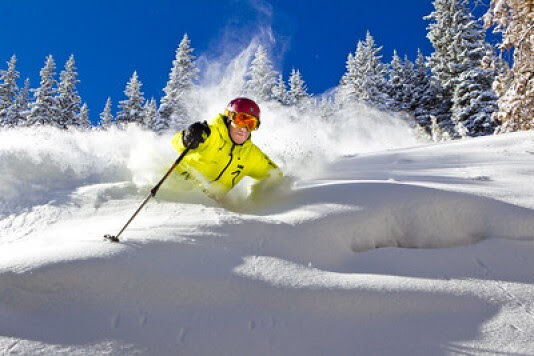10th Circuit says no refunds for Vail Resorts customers after curtailed 2020 ski season

Three years after the COVID-19 pandemic forced Vail Resorts to halt operations for the 2019-2020 season, the federal appeals court based in Denver has ruled passholders cannot sue the ski conglomerate for refunds.
Vail customers from Colorado and other states pursued a class action lawsuit against the company on the theory that the Epic Passes they bought for themselves and their families entitled them to unlimited access to the slopes during the ski season. The passholders argued the length of the “ski season” is traditionally determined by snow conditions, and Vail breached its contract by prematurely terminating the season without providing partial refunds.
A three-judge panel of the U.S. Court of Appeals for the 10th Circuit concluded that even if the passholders were correct about the ski season, Vail clearly advertised its Epic Passes were not subject to a refund “of any kind.”
“The plain meaning is to deny all refunds no matter the circumstances and Passholders cannot now seek the exact remedy they contracted away,” wrote Judge Carolyn B. McHugh in the June 6 opinion.
Judge Allison H. Eid wrote separately, agreeing that dismissing the claims was the proper outcome, but adding she did not believe the plaintiffs should be permitted to refile their lawsuit. The panel’s majority, consisting of McHugh and Chief Judge Jerome A. Holmes, found the passholders could pursue a form of compensation other than refunds – such as limited access to Vail properties to make up for the time they were unable to ski in 2020.
“Passholders are not interested in other forms of relief; they want ‘cash only,'” Eid wrote in rejecting that proposition. “Passholders should not be given another bite at the apple.”
Case: McAuliffe v. The Vail Corporation
Decided: June 6, 2023
Jurisdiction: U.S. District Court for Colorado
Ruling: 3-0 for dismissing the claims; 2-1 for allowing ski passholders to refile claims
Judges: Carolyn B. McHugh (author)
Jerome A. Holmes
Allison H. Eid (partial dissent)
Background: 10th Circuit mulls reinstating lawsuit against Vail Resorts for early COVID-19 closure
When the novel coronavirus began to rapidly spread in the United States, Vail Resorts announced in mid-March 2020 that it would close for the remainder of the ski season. Around the same time, Gov. Jared Polis ordered the closure of ski resorts in the name of public health.
A group of customers who purchased Vail Resorts’ Epic Passes, at prices ranging from $411 to $1,780, quickly sued Vail for breach of contract after the company refused to refund their passes to reflect the curtailed ski season. Vail subsequently announced it would allow passholders to apply credits toward the purchase of a 2020-2021 season pass, at a cost to the company of at least $106 million. Of the 1.1 million passholders for the COVID-impacted ski season, roughly 200,000 chose not to apply for credits by the deadline.
The plaintiffs, who were among the group that did not receive credits, pursued a class action lawsuit seeking partial refunds from Vail. U.S. District Court Senior Judge R. Brooke Jackson eventually dismissed the claims, reasoning that the 2019-2020 “ski season” to which the passholders had access meant the period where skiing and snowboarding were possible “safely.” Even if the snow conditions allowed the “core” season to last several weeks more, COVID-19 had rendered the resorts too dangerous, Jackson reasoned, justifying Vail’s decision to close early.
“Vail did not fail to compensate passholders. It issued Epic Pass credits,” he wrote. “The contracting parties may have reasonably expected adequate compensation in the event of an unexpected closure, but they could not have expected cash only.”
The passholders appealed, clarifying they did not fault Vail for shutting down, only for doing so while denying partial refunds. The company shot back that its decision to close saved lives, and the passholder agreement specifically ruled out refunds.
“No law or principle of morality requires that the economic consequences of COVID-19 cannot affect these plaintiffs in the slightest,” wrote lawyers for Vail.
The 10th Circuit panel disagreed in part with Jackson. While it was plausible for the “ski season” to broadly mean the window where skiing was possible safely, the term could also mean what the plaintiffs claimed: the ability to ski as long as snow conditions allowed.
But even if the meaning of “ski season” could show Vail breached its contract or violated various consumer protection laws, the no-refunds provision barred the plaintiffs’ only requested form of compensation – money.
“This, however, does not prevent Passholders from seeking some other type of relief from Vail if they establish Vail breached its contracts with Passholders by closing its resorts,” wrote McHugh. She explained the plaintiffs, for example, “could seek future access to Vail’s resorts for the amount of time Vail closed its resorts prior to the end of the 2019-2020 ski season.”
Eid slammed the majority’s reasoning for letting the passholders refile their lawsuit, alleging McHugh’s opinion “just gets the facts wrong.” The plaintiffs explicitly sought refunds only and, she argued, their definition of “ski season” was also incorrect.
“That term cannot mean what Passholders propose – namely, that the ski season must go on even though it is unsafe to ski,” Eid wrote.
A similar lawsuit proceeded against Alterra Mountain Company, a resort operator based in Denver. In contrast with the Vail case, U.S. District Court Judge Raymond P. Moore found the allegations credible that Alterra wrongfully denied access to passholders for the 2019-2020 season. Last year, Alterra reached a $17.5 million settlement to give credits to passholders in lieu of refunds.
The case is McAuliffe et al. v. The Vail Corporation.














